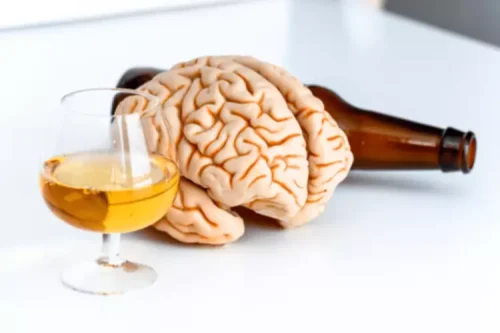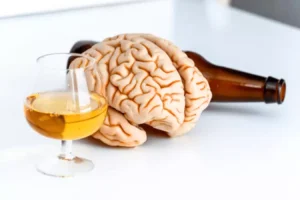

Its primary objective is to investigate research inquiries pertaining to the preclinical and prodromal stages of AD. A detailed description of the study protocol has been published previously 34. In summary, neurologists conducted a comprehensive interview and clinical examination. Vital signs and anthropometric measurements were meticulously recorded.
Alcohol-Related Dementia: Causes, Symptoms, Stages & Treatment
Sometimes, physical changes such as movement disorders or coordination problems can help differentiate types of dementia. Not everybody who consumes excessive amounts of alcohol for long periods of time develops dementia. However, there is no way to predict whether a person who consumes large amounts of alcohol will develop alcohol-related dementia or not. Drinking alcohol in moderation had not been considered a cause of health problems or dementia. However, recent studies suggest that even moderate alcohol use can increase the likelihood of dementia. Most alcohol what is Oxford House support services are designed to help people stop drinking and stay sober and there may sometimesbe less immediate support available to deal with the dementia-related parts of rehabilitation.
Wernicke-Korsakoff Syndrome
Wernicke encephalopathy causes an acute confusional state in the person. In people with young-onset dementia (who are younger than 65 years old) ARBD affects about one in can alcohol cause dementia eight people. It is likely – for a wide range of reasons – that the condition is under-diagnosed.


Treatment


Therapy for alcohol-related dementia can include management of AUD, nutritional supplementation to compensate for nutrient deficiencies, and exercises to help improve cognition (thinking abilities) and motor skills. Excessive alcohol use for many years is linked to alcohol-related dementia, and some people can develop it more rapidly than others. However, many support services have a ‘complex needs’ team which are better equipped to support the different needs of someone with alcohol-related ‘dementia’. Often, symptoms stop progressing and even improve after you stop drinking.


This results in cognitive decline, memory loss, difficulty with problem-solving, and changes in behavior. Unlike other forms of dementia, this condition is directly linked to alcohol’s toxic effects on the brain, as well as poor nutrition and deficiencies, such as a lack of thiamine (vitamin B1). Unlike Alzheimer’s disease, which progresses due to genetic and other factors, Alcohol Induced Dementia is directly linked to the toxic effects of alcohol on the brain. Early diagnosis and treatment, including stopping alcohol use and addressing nutritional needs, can slow or sometimes reverse its progression.


At the current time there are no acceptable criteria to definitively define alcohol-related dementia. Symptoms tend to develop gradually and worsen over time if you continue drinking. Your provider will help you set realistic expectations based on your health and unique situation. Alcohol-related dementia can affect how long you’ll live (your life expectancy). But it’s hard for experts to estimate a set number or guidelines that apply to everyone. They want to help you understand what’s causing the symptoms you’re experiencing.
- Recognizing symptoms early and taking action can greatly improve long-term outcomes.
- Chronic alcohol consumption can gradually interfere with thiamine absorption, hindering its distribution and damaging cells.
- Memory and decision-making are also severely affected, which means that people living with this condition need help from trusted family or friends to manage home, finances, transportation, and more.
- This makes alcohol-related dementia easy to hide for some people, and difficult to diagnose at times.
- For example, if the person stops drinking alcohol, takes high doses of thiamine and starts eating a balanced diet.
If you stop drinking, it’s possible to at least partially reverse the effects of alcohol-related dementia. Research suggests it’s possible to experience partial recovery of your brain’s white matter, which is accompanied by an improvement in cognitive and motor abilities. Note that alcohol-related dementia is sometimes confused with Wernicke-Korsakoff syndrome. While the two conditions share some similarities, they have different causes. Wernicke-Korkasoff syndrome is caused by a thiamine (Vitamin B1) deficiency, though heavy alcohol use can be an underlying cause of this deficiency.
Unlike many forms of dementia, alcohol-related dementia may be reversible depending on the circumstances. Reversing alcohol-related dementia involves stopping alcohol use so that healing can occur. There is good support and treatment for alcohol addiction and alcohol-related brain injury.